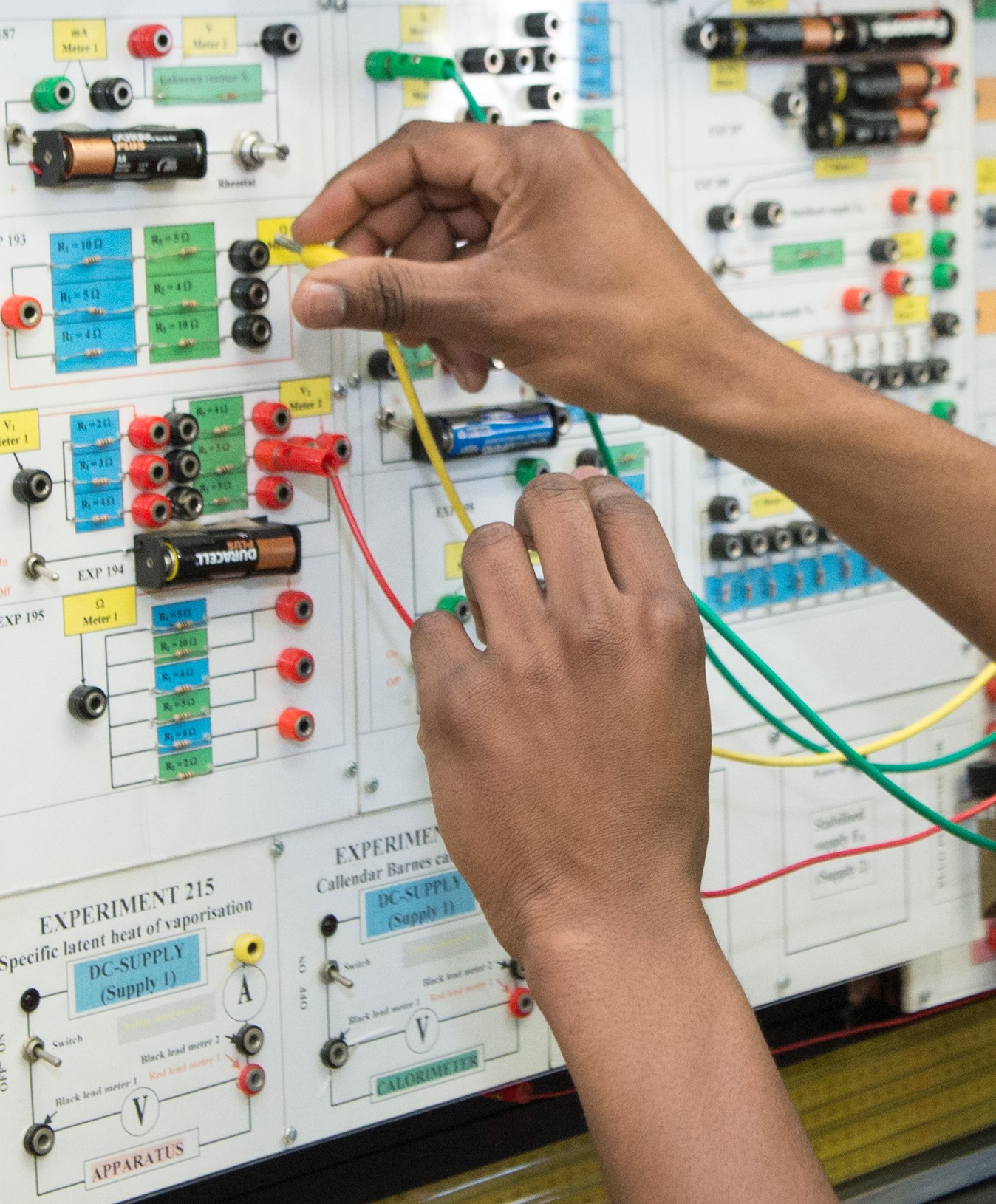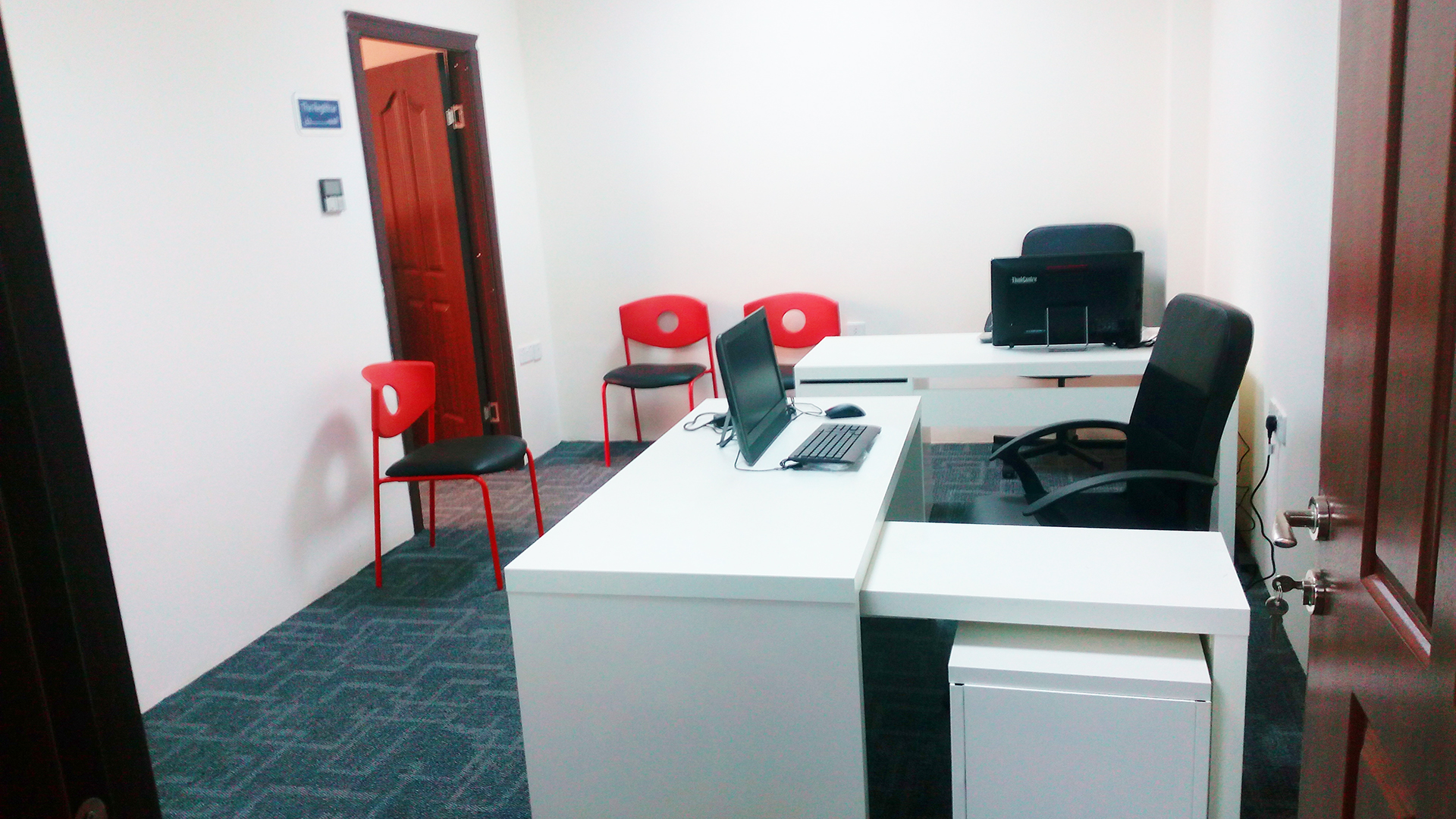Electrical and Electronic Engineering
The massive progression of technology refers to the momentum of rapid development in applied sciences specially in the electrical and electronic field. The improvement of the modern technology such as internet, wireless communication, high advanced microprocessors, energy stations and renewable energy and control systems are all achieved by reliance on of electrical and electronic fundamental sciences. Therefore, the study plan of the electrical and electronic engineering should be built upon essential theories in a way that we could be able to develop technology and innovate other new and modern theories.
The recommended academic plan for this programme contains engineering sciences that can be used to resolve issues and challenges by depending on academic foundation, practical and on field experiments in addition to individual and group projects. Moreover, the academic plan characterized by its flexibility to enable students to choose their specializations from different available areas in the electrical and electronic engineering field.

Programme Objectives
- Produce highly qualified graduates with the sufficient knowledge and understanding of essential electrical and electronic engineering and able to apply these essentials to solve any engineering problems including the ability to describe the performance of the components and systems through use of analysis techniques and modeling.
- Produce highly qualified graduates with the sufficient knowledge of the engineering essential and the ability to apply these essentials and techniques to solve electrical mathematics and electronic engineering problems.
- Produce highly qualified graduates with ability to solve electronic and electrical engineering problems including the ability to identify the work environment, safety, cost and possible hazards. In addition to the required skills to manage inspection process that guarantee the maximum positive outcomes.
- Produce highly qualified graduates with knowledge to understand the economical, social and environmental context to practice electrical and electronic engineering in a way that guarantees the evaluation of the sustainability and the consideration of legal and ethics issues.
Requirement and Business Practice
- There should be the required understanding of skills to practice electrical and electronic engineering including laboratory skills, use of scientific literature, awareness of intellectual property and the awareness of the quality and the technical work.
- Being responsible of academic and career development.
Admission requirements
- Scoring 65 % in the Sudanese Certificates or equivalent according to MHESR assessment.
- Passing the interview of the admission panel.
- Passing the English Language test in the 1st year.

Knowledge and Understanding
- Knowledge and understanding of scientific principles and methodology necessary to underpin their education in their engineering discipline, to enable appreciation of its scientific and engineering context, and to support their understanding of historical, current and future developments and technologies.
- Knowledge and understanding of mathematical principles necessary to underpin their education in engineering discipline and to enable them to apply mathematical methods, tools and notations proficiently in the analysis and solution of engineering problems.
- Ability to apply and integrate knowledge and understand of other engineering disciplines to support study of their own engineering discipline.
Intellectual Skills
- Understanding of engineering principles and the ability to apply them to analyse key engineering processes.
- Ability to identify, classify and describe the performance of systems and components through the use of analytical methods and modelling techniques.
- Ability to apply quantitative methods and computer software relevant to the engineering discipline, in order to solve engineering problems.
- Understanding of and ability to apply a systems approach to engineering problems and to work with uncertainty.
- Investigate and define a problem and identify constraints including environmental and sustainability limitation, health and safety and risk assessment issues.
- Understand customer and user needs and the importance of considerations such as aesthetics.
- Identify and manage cost drivers.
- Use creativity to establish innovative solutions.
- Ensure fitness for purpose for all aspects of the problem including production, operation, maintenance and disposal.
- Manage the design process and evaluate outcomes.
Transferable/Key Skills
- Knowledge of characteristics of particular materials, equipment, processes, or products.
- Workshop and laboratory skills.
- Understanding of contexts in which engineering knowledge can be applied (e.g. operations and management, technology development, etc.)
- Understanding use of technical literature and other information sources.
- Awareness of nature of intellectual property and contractual issues.
- Awareness of appropriate codes of practice and industry standards.
- Awareness of quality issues.
- Ability to work with technical uncertainty.
- Effective communication
Professional/Practical Skills
- Knowledge and understanding of commercial and economic context of engineering processes.
- Knowledge of management techniques which may be used to achieve engineering objectives within that context.
- Understanding of the requirement for engineering activities to promote sustainable development.
- Awareness of the framework of relevant legal requirements governing engineering activities, including personnel, health, safety, and risk (including environmental risk).
- Understanding of the need for a high level of professional and ethical conduct in engineering.
